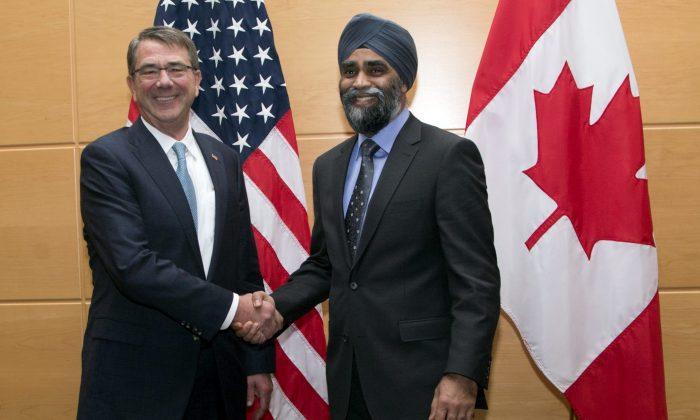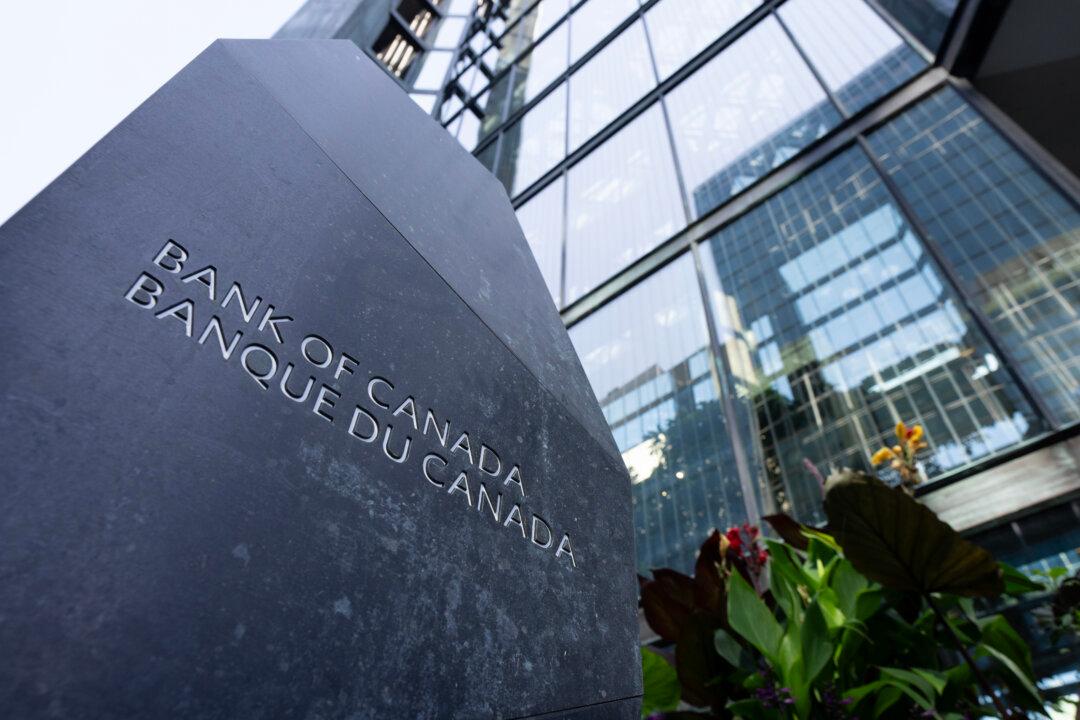US defence secretary thanks Sajjan for extra Iraq trainers
OTTAWA—U.S. Defence Secretary Ash Carter has thanked his Canadian counterpart Harjit Sajjan for tripling Canada’s contingent of military trainers in Iraq.
The pivotal conversation marked the first face-to-face meeting between the two ministers, and it came at a larger gathering of NATO defence ministers in Brussels on Feb. 10.
The NATO meeting came just days after Ottawa rolled out its long-awaited strategy for helping fight the Islamic State. The Liberal government followed through on its election promise to withdraw its six CF-18 fighter jets, which will stop bombing in Iraq and Syria by Feb. 22.
The Carter-Sajjan meeting was significant because the government has faced heavy criticism for withdrawing its fighters jets.
Ottawa proposes ban on plastic microbeads in facial cleansers, toothpaste
OTTAWA—The federal government is drafting regulations to ban plastic microbeads from facial cleansers, toothpaste, and other products and is asking for public input.
Consumers have until March 10 to make their views known, as Environment Canada works out a timetable for eliminating the environmental pollutant.
Parliamentarians voted unanimously last March to remove microbeads from the market, due to evidence of the plastic accumulating in lakes and rivers.
The proposed regulations would forbid the manufacture and import of personal care products containing microbeads by the end of 2017 and ban the sale of such products by the end of 2018. Natural health products containing microbeads would be phased out a year later.
PEI park honours general who wanted aboriginals killed, Mi'kmaq leader says
CHARLOTTETOWN—A Mi'kmaq leader says it’s an insult that a national park in Prince Edward Island bears the name of a military general who wanted to kill aboriginal people with smallpox-infected blankets.
John Joe Sark, a member of the Mi'kmaq Nation traditional government, says the name of General Jeffery Amherst, a British military commander who served in the 1700s, should be removed from the park near Charlottetown. He says the Port-la-Joye-Fort Amherst historic site is insulting because Amherst’s goal was to wipe out aboriginal peoples.
Sark wants the federal government to change the name to reflect how Mi'kmaq people lived in the region long before and also after European settlers.
Two First Nations launch $3B lawsuit over aboriginal oil
Two First Nations in Saskatchewan and Alberta are launching a lawsuit over what they say is federal mishandling of the energy resources on their reserves. The Onion Lake and Poundmaker Cree bands are asking Federal Court to award $3 billion in damages.
In their statement of claim they accuse Indian Oil and Gas Canada, the federal agency responsible for developing and regulating oil and gas reserves on aboriginal land, of failing to promote and develop the resource.
The bands also say the agency failed to protect energy resources under their lands from being drained by wells adjacent to them.
Taxi drivers in Montreal protest Uber by blockading sites across city
MONTREAL—Taxi and limousine drivers in Montreal blocked access to certain sites across the city—including the airport—on Feb. 10 in protest against Uber.
The Quebec branch of the United Steelworkers union, which represents many of the city’s taxi drivers, wants to pressure the provincial government into forcing Uber to stop operating during the upcoming legislative inquiry into the taxi industry.
Taxi drivers across the province say the government hasn’t done enough to clamp down on Uber drivers, who they say have been undercutting fares and operating outside the law.
Student group wants Liberals to spend $3.3B annually on free college, university
OTTAWA—The largest organization for post-secondary students in Canada is calling on the federal government to fund university and college education the same way it does health care and enshrine it in legislation.
The Canadian Federation of Students is pushing for a federal post-secondary education bill that would see the federal government become more active in an area of provincial jurisdiction.
The federation says the federal government should repurpose cash used for programs like the registered education savings plan and instead create a $3.3-billion annual transfer for provinces to make post-secondary education free for students.
With files from The Canadian Press






Friends Read Free